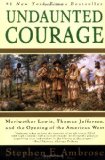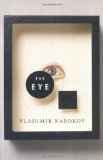Book Review: "The Brief, Wondrous Life of Oscar Wao" by Junot Díaz
May 27, 2008

This is not a novel about a fat kid named Oscar. Maybe, but barely, if so. It is instead a story of the people and events surrounding him, making a hole in the world shaped like him. It’s a telling of him by way of that which surrounds him, of things orbiting him–appropriate for someone whose girth at one point gets compared to a planet.
It is appropriate, then, that the central theme of the novel is “fuku”, a Greater Antilles version of a family-wide curse. It is not a personal hex, but one that spans generations, one of mythical, communal proportion, likened to the curse on the House of Atreus. It’s triggered by love. Love drives Oscar’s Dominican mother, sister, grandparents, great-aunt to the brink of their lives.
Junot Diaz tells this epic in breathless fits of smart-mouthed momentum, peppered with science fiction references, humor, and David Foster Wallace-esque footnotes. These footnotes provide smart dosages of brutal Dominican history. Shameful ones: though I could likely have pointed the country out on a map before, I feel bereft that I didn’t know about the dictatorships, the repression, the violence. Now in 1950s Dominican Republic, now in 1990s New Jersey, Diaz keeps the setting leaping between intertwined meanings.
Our narrator is at first an observer, but quietly grows and grows until you realize that the novel might be about him, too. Yunior–that’s all we get for a name–is a hoplessly-philandering, confident, self-described typical Dominican, good (too good) with the ladies, bound to his heritage. Initially derisive of Oscar, he is practically prostrate to him in retrospection. Then one starts wondering. It’s Oscar who is supposed to be the sci-fi dork, so why is Yunior describing things himself in such sci-fi terms? The notion is Oscar’s but the voice is Yunior’s. Oscar’s sister Lola, who shares the burden of first-person narrator for some time, has her own voice. It’s Yunior’s whose seems inextricable from Oscar’s. How did they cross-pollinate? Are they two halves of some cosmic whole?
Diaz’s bantery cleverness is balanced by the gravitas of the decades of violent regime in the Dominican Republic, protecting the story from floating off, insubstantial, even in its most snarky moments. The magical symbols the characters experience right before their greatest perils (a golden-eyed mongoose, a terrifying faceless man) bind them harder to each other and their common fates.
Recently Reviewed
Get the Books
Read my Reviews
Related Posts
- What goes through your Head?
April 8, 2008 - Book Review: “The Ballad of the Sad Cafe” by Carson McCullers
January 8, 2009 - Book Review: “The Women” by T.C. Boyle
December 30, 2009 - Books: The Onus of Translation
September 8, 2006 - I am going to Iceland: Preparation!
February 10, 2010





